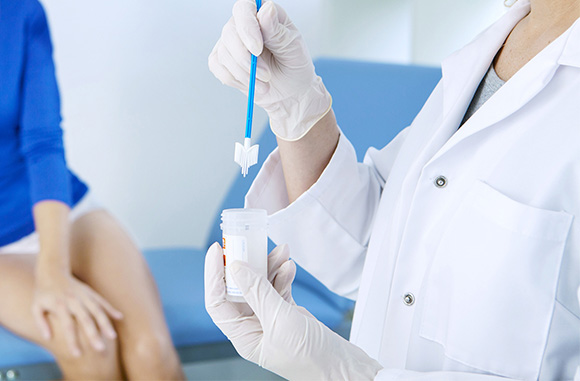
Pap smear tests: At what age and how often

By Dr Manisha Tomar, Consultant Obstetrics & Gynaecology, Motherhood Hospital, Noida

Being the second most common cancer in women between the age group of 15 and 44 years of age, the awareness towards cervical cancer and its screening are miniscule in our country. Cervical cancer is a completely preventable disease because of its well defined, long pre-malignant phase and it can be detected easily by regular screening tests and follow up. Unfortunately, the females in India are unaware about the screening process for the cervical cancer care. With the vaccination, screening and treatment, the World Health Organization (WHO) has recently aimed to reduce more than 40% of new cases and 5 million related deaths of cervical cancer by 2050.
What's Pap smear test?
It's crucial that we should also learn about Pap smear test. It's a screening test used to detect potentially pre-cancerous and cancerous processes in the endocervical canal. The doctor takes out a cluster of cells from a person's cervix using a spatula-like instrument to look for changes in the cervix's cells. A pap smear helps in diagnosing cellular changes resulting from cancer, precancer, human papillomavirus (HPV), inflammation, or an infection.
At what age one can go for Pap smear?
According to the Centers for Disease Control and Prevention (CDC) recommend, all women who fall between the age group of 21 and 65 years should get their Pap smears tests at regular interval. However, the National Institutes of Health (NIH) recommend that girls below 21-year-old should be refrained from pap smears. At the same time, they also suggest that women over 65-year-old shouldn't get a Pap smear except under certain circumstances, such as abnormal results or increased risk factors for cancer.
However, both menopausal and postmenopausal, should continue to have Pap or HPV tests. Women who have had a total hysterectomy for a noncancerous condition and have not had a previous history of precancerous Pap tests may be able to stop Pap screening depending on their medical history and risk of contracting human papilloma virus (HPV).
One should not forget that testing is the best tool to detect pre-cancerous conditions that may lead to cervical cancer. Cervical cancer can be cured if detected on time.
How often one should go for Pap smear based on age?
Here are the following recommended testing schedules based on a person's age:
- From 21 29 years
The ideal age for having Pap smear is 21-year-old. If the result is negative then the next test would be done after the gap of three years.
- From 30 65 years
In this age, the person can either have a Pap test, or a combined Pap and HPV test after consulting with the doctor. In case of single Pap test, then the doctor would ask to come after three years if the tests are normal. When the person opt for the combined test, and both results are normal, the doctor would ask to wait for 5 years for the next screening test.
If a person is having her periods at the time of their scheduled appointment, they should check with their clinician whether they should go ahead with the test. In most of the cases, the test happens if you re menstruating.
Doctors can suggest a person to avoid only the following before a Pap smear:
- Having sex
- Douching the vagina
- Using tampons or vaginal lubrication
- Vaginal creams, suppositories, or medications
- Using birth control foam, cream, or jelly
Related Blogs

How to Treat and Prevent Brown Discharge
Read More
Endometriosis Understanding, Diagnosing, and Managing the Condition
Read More
Emotional Support During IVF Treatment
Read More
Understanding Gestational Diabetes: Insights from Dr Shruthi Kalagara
Read More
Urinary Tract Infection (UTI) in Pregnancy
Read More
Early Pregnancy Care for New Pregnant Women: Expert Advice | Motherhood Hospitals
Read More
Body Positivity Tips Post C Section (Cesarean Delivery)
Read More
Vaginoplasty: Procedure, Cost, Risks & Benefits, Recovery
Read More
The Digital Dilemma: Exploring the Medical Implications of Technology on Child Development
Read More
How To Relieve Menstrual Cramps? - 8 Simple Tips
Read MoreRequest A Call Back
Leave a Comment:
View Comments
Previous
Next
HELLO,
Stay update don our latest packages, offer, news, new launches, and more. Enter your email to subscribe to our news letter


 Toll Free Number
Toll Free Number








No comment yet, add your voice below!